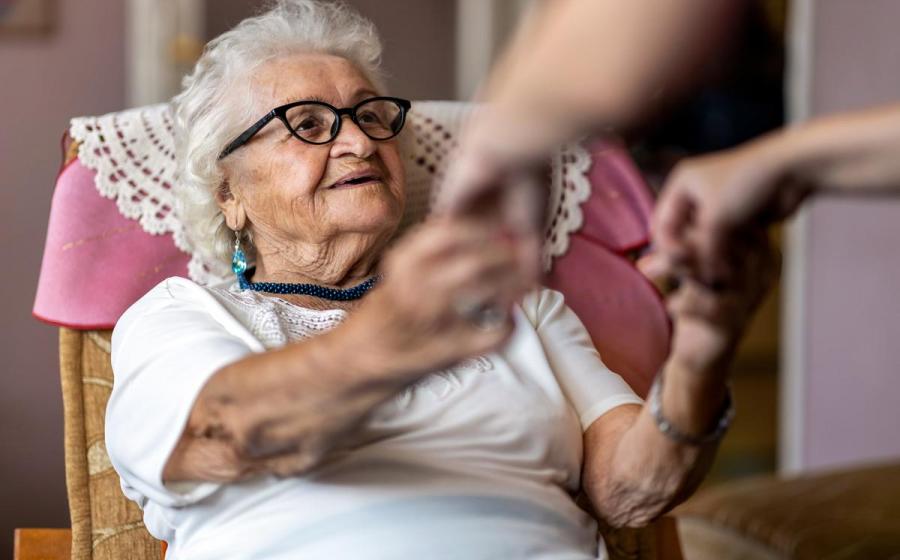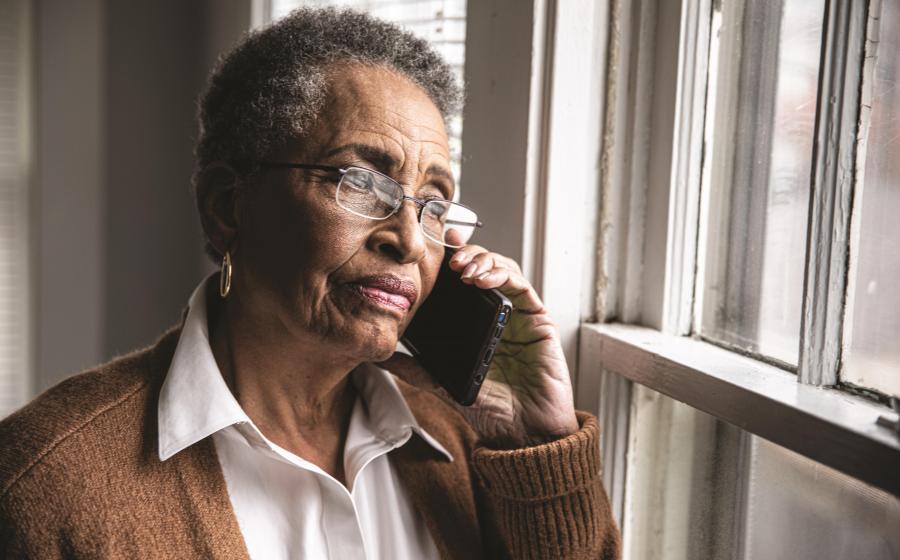5 Tips to Help Older Adults Stay Apart, Not Alone During COVID-19
With COVID-19, there are added complications, notably physical separation. Some people are supporting older relatives who live far away while others may be close by, but are maintaining a safe distance. The goal is to maintain social closeness while also practicing physical distance.
"As the primary caregiver to my parents, I know well that the ways we support the older adults in our lives have changed," says Ray Spoljaric, CEO and Co-Founder of Aloe Care. "Caregivers are resilient, committed people and will go to any lengths to provide for those they care for. Now more than ever, communication and collaboration are key to providing the highest level of care."
If you're a new caregiver, or concerned about COVID-19 for someone you support, consider these five tips from nationally recognized expert Amy Goyer:
* Establish a Care Circle - Identify the people who can help. It may be a combination of professionals, family members, and/or friends.
Collect names, phone numbers, and email addresses of everyone in your Care Circle. This is also a good place to store elders' information, particularly what you would need in case of an emergency (i.e., medications, pre-existing conditions, home access details).
* Stay Connected - Next, establish regular check-ins.
With new physical distancing guidelines, social connection is more important than ever. Prepare a schedule of remote check-ins by the Care Circle. Consider leveraging technology in a solution like Aloe Care, which facilitates easy check-ins and care collaboration.
* Maintain Medical Care and Support - Telehealth is a rapidly advancing option for safe care. In fact, the Centers for Medicare & Medicaid Services recently expanded coverage and loosened policies and regulations regarding telehealth.
Many pharmacies have mail- order options and are expanding support for caregivers to manage medications.
* Cover the Essentials - Assess the food, household, and personal supplies the elders have at home and what they need to keep in stock.
Many grocery stores now offer contactless delivery or pick-up. A quick online search should reveal the best local option. Additionally, the Area Agency on Aging's Eldercare Locator is a great resource, as is Meals on Wheels.
* Well-Rounded Health - While it may take some creativity during COVID-19, everyone needs stimulation physically, cognitively, and emotionally to maintain their well-being (including you, dear caregiver). Find ways to keep your loved ones and yourself active with technology, puzzles, letter-writing, exercises and more.
For more advice and resources about remote caregiving, please refer to the complete "Apart, Not Alone" guide by Amy Goyer.


 - Many older adults would prefer to remain in their own homes as they age, but a lack of affordable options makes this plan a challenge for individuals and their families, according to results of a new survey of more than 1,700 caregivers and other respondents in two rural California counties.
- Many older adults would prefer to remain in their own homes as they age, but a lack of affordable options makes this plan a challenge for individuals and their families, according to results of a new survey of more than 1,700 caregivers and other respondents in two rural California counties. 
 - Now that we’re halfway through 2022, it’s important that people with Medicare re-evaluate what is included in the Medicare Advantage health plans they selected to ensure they’re maximizing their coverage throughout the year.
- Now that we’re halfway through 2022, it’s important that people with Medicare re-evaluate what is included in the Medicare Advantage health plans they selected to ensure they’re maximizing their coverage throughout the year.
 - Today, many adults have elderly parents who live independently. As the number of digital scammers preying on the elderly increases, however, your aging parents are at higher risk of financial fraud.
- Today, many adults have elderly parents who live independently. As the number of digital scammers preying on the elderly increases, however, your aging parents are at higher risk of financial fraud.  - 100.
- 100.




 - Approaching age 65 can be an overwhelming time for many newly eligible Medicare beneficiaries. When can you begin to enroll? Which plans should you consider? What do you need to know?
- Approaching age 65 can be an overwhelming time for many newly eligible Medicare beneficiaries. When can you begin to enroll? Which plans should you consider? What do you need to know?
 - Medicare's annual enrollment period (October 15 - December 7) is an important time of year during which Medicare beneficiaries can review their current coverage and evaluate whether they want to remain with their current plan or switch to a new one that is a better fit for their health care needs. If you are interested in what Medicare Advantage plans have to offer, this is a good time to learn more and understand what's available to you.
- Medicare's annual enrollment period (October 15 - December 7) is an important time of year during which Medicare beneficiaries can review their current coverage and evaluate whether they want to remain with their current plan or switch to a new one that is a better fit for their health care needs. If you are interested in what Medicare Advantage plans have to offer, this is a good time to learn more and understand what's available to you.



